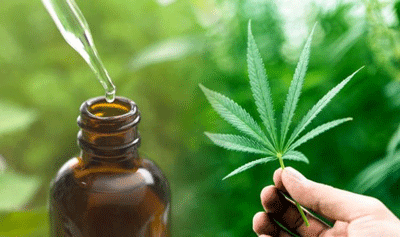Ivey OK’s selling of CBD oil in pharmacies.
Published 12:00 am Wednesday, June 19, 2019
With the recent passing of a bill that will allow pharmacies to sell CBD oil, local pharmacists agree that they need more education before they provide it.
Gov. Kay Ivey signed Senate Bill 225 on June 10, allowing pharmacies to sell CBD products containing no more than 0.3 percent THC.
Until the bill was signed, Alabama pharmacies were prohibited from selling the products, even if consumers could purchase them at gas stations and quick marts.
Proponents of CBD – the shortened name for cannabidiol, a non-psychoactive compound found in the cannabis plant– say it helps with medical conditions ranging from seizures and epilepsy to PTSD and chronic pain.
In December 2018, the U.S. House passed the Farm Bill, which contained a provision legalizing CBD derived from industrial hemp, as long as it has a THC concentration of no more than 0.3 percent. Technically, the bill changed the legal status of hemp from a controlled substance to an agricultural commodity.
That decision meant people could buy and sell CBD legally.
In its earlier guidance, however, the Alabama Board of Pharmacy said until the Alabama Department of Public Health removed hemp and hemp-derived products from the list of Schedule 1 Controlled Substances “Alabama pharmacies and pharmacists must abide by the strictest rule. In this situation, the strictest rule is CBD products containing any THC are a Schedule 1 Controlled Substance under Alabama law.”
Jeff Bailey of Bailey’s Pharmacy said that he is not sure whether he will put CBD oil in his store.
“We don’t sell it right now,” Bailey said. “The Alabama Board of Pharmacy cautioned us about the concentration because that has been a real issue. Some of the analysis that I have seen has been all over the place. So, I don’t know, because I don’t want to provide something that is not legal. First off, I want to make sure that it is safe.”
He said that there has been some interest in the CBD oil by his customers already.
“With all the talk and with all the press that it has got, we have gotten some questions about it,” Bailey said. “I don’t have that much interest in bringing it to my store honestly. If we ever do bring it to our store, we will be the last ones to do so.”
Tavia Tillman of Mallette Drugs said that she is attending a convention next week to learn about CBD.
“We do not sell CBD right now,” Tillman said. “I am attending a pharmacy convention in Orlando next week so I will meet with my wholesaler and they will educate us on the issue.”
Tillman said that she wants to be completely educated before she puts the item in her store.
“I want to make sure that I get a pharmacy approved line of CBD,” Tillman said. “Not the stuff that you see in the gas station or something like that. I want to make sure it is approved and only for pharmacies.”
She said that she has received a few calls concerning the CBD oil, which is why she chose to go to the convention.
“I was not surprised when they passed the law,” Tillman said. “Because there has been a lot of interest. So I am excited to see what I learn at the convention next week.”
The Food and Drug Administration, which recently held its first hearing on CBD, also has reservations regarding its medical benefits.
“Other than one prescription drug product to treat rare, severe forms of epilepsy, the FDA has not approved any other CBD-containing products,” Dr. Amy Abernathy, principal deputy commissioner of the FDA said. “We want consumers to be aware that there is only limited available information about CBD, including about its effects on the body.”
Among the questions the FDA seeks to answer in future hearings are the safe levels of daily CBD consumption and any possible long-term exposure issues, as well as how it interacts with other drugs.






